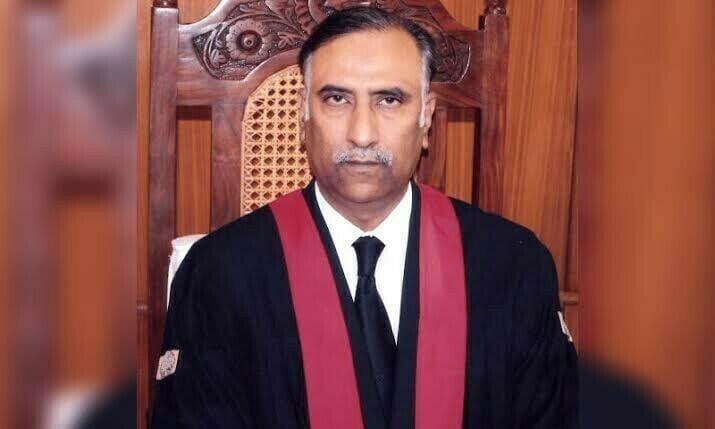Islamabad:
President Asif Ali Zardari officially declared judge Sardar Sarfraz Dogar as the most principal judge of the High Court of Islamabad (IHC) and confirmed the permanent transfer of Dogar Judge with two other judges.
Following the president’s decision, a new IHC judges’ seniority list was published by a Gazette notification dated June 27, 2025.
According to the notification, judge Sarfraz Dogar, who had previously been the transfer, was placed at the top of the IHC seniority list.
Judge Mohsin Akhtar Kayani has been listed in second position and will serve as a main judge. Justice Mian Gul Hassan Aurangzeb follows in third position, while judge Tariq Mehmood Jahangiri, judge Babar Sattar and judge Sardar Ejaz Ishaq Khan were registered respectively fourth, fifth and sixth.
Judge Arbab Muhammad Tahir ranks seventh, followed by judge Saman Riffat Imtiaz in eighth place.
Judge Khadim Hussain Soomro, another transferred judge, is listed ninth, while judge Azam Khan, judge Muhammad Asif (transferred from Quetta) and Judge Inam Amin Minhas occupy the tenth, eleventh and twelfth posts respectively.
The question of confirmation of the permanence of the transferred judges and the finalization of the updated seniority had been sent to the president for approval. It marks a major turning point in the case of transferring current judges, which has experienced an increased legal challenge in recent weeks.
However, controversy continues to brew. Only two days before the publication of the new list, five CIH judges filed an official appeal against the decision of the Supreme Court, arguing that the transfers have undermined the clear stipulations of the Constitution on judicial and seniority appointments.
On June 27, five judges from the High Court of Islamabad had appealed against the previous decision of the Supreme Court, requesting a suspension on the implementation by the president of this judgment. They urged the court to prevent the president from acting on the decision until the case could be fully judged.
The judges – judge Mohin Akhtar Kayani, Judge Tariq Mehmood Jahangiri, Judge Babar Sattar, judge Sardar Ejaz Ishaq Khan and judge Saman Rafat Imtiaz – had previously submitted a representation contesting the base of transfers.
They argued that a judge transferred to another high court was to take an oath and that their seniority should be determined from the date of their new appointment, not from their original judicial service.
According to the petition, this means that the transferred judges should rank below the judges of the IHC who were already part of the court. The dissident judges had also refrained from attending the oath ceremony of judge Dogar as an acting chief of the IHC – a symbolic demonstration which underlined the deepening rift within the bench.
The legal community is now awaiting the July 1 meeting of the Pakistan Judicial Commission (JCP), which should resume the question of the permanent appointment of chief judges in the high lessons of Islamabad, Sindh and Peshawar.
The names of judge Dogar, judge Kayani and judge Miangul Hassan Aurangzeb are currently being studied for the IHC niche.




